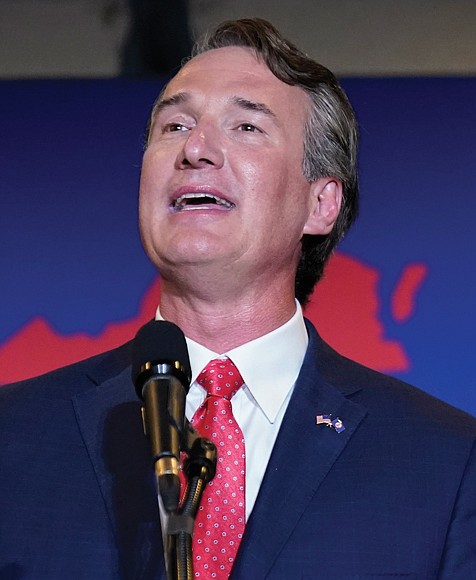After rebuffing repeated requests, Gov. Youngkin provides documents ahead of court hearing
Jeremy M. Lazarus | 11/9/2023, 6 p.m.
For the first time, the Virginia State NAACP and its attorneys have gained a view of what they consider Republican Gov. Glenn A. Youngkin’s arbitrary process for restoring the rights of individuals released from prison.
The governor’s office released 680 pages of internal documents in response to the Virginia NAACP’s Freedom of Information lawsuit just before a scheduled court hearing Nov. 3 on the issue.
The hearing was continued until later this month to allow the state NAACP and its lawyers time to review the information.
The document dump came as an “abrupt reversal” of the state’s position that virtually all of the documents were working papers and could be withheld as an exception to the Virginia Freedom of Information Act.
Deputy Attorney General Stephen Popps described the release “as an exercise in discretion” and other officials called it an effort reduce conflict with the civil rights group, which has been pushing for the documents since June.
According to a statement from attorneys for the NAACP, which is represented by the Lawyers’ Committee for Civil Rights Under Law and Hogan Lovells US LLP, the documents “reveal a process completely lacking in consistency or clear standards in preventing thousands of returning citizens from participating in Virginia’s ongoing elections.”
Virginia is one of the only states left where citizens convicted of felonies are stripped of their civil rights for life unless the governor intervenes.
The key question is whether Gov. Youngkin, like previous governors, has absolute discretion to restore those rights to felons under the state’s constitution.
The issue of the governor’s authority is now the main subject of a separate lawsuit that released felon George Hawkins Sr. is pursuing in federal court after being rejected for restoration of rights.
U.S. Judge John A. Gibney Jr. last month rejected the state’s request to dismiss the constitutional challenge that Mr. Hawkins has filed as premature, but is expected to more fully consider the issue at a hearing scheduled for next March.
The question of Gov. Youngkin’s authority is front and center as a result of policy change he made earlier this year.
Without any announcement, Gov. Youngkin abruptly junked the almost automatic restoration of voting rights for released felons that began in 2013 under Republican Gov. Robert F. “Bob” McDonnell and accelerated under his Democratic successors, Terry McAuliffe and Ralph Northam.
Their initiatives had restored to tens of thousands of felons the right to vote, serve on juries, run for office and serve as notaries to verify signatures.
Outgoing state NAACP President Robert Barnette Jr. hopes that the situation will change.
“This cannot be allowed to continue,” he wrote in a statement. “We demand that the governor end this discriminatory policy and restore the rights of all current and future applicants without equivocation and without further delay.”
Concern about voting rights has increased under Gov. Youngkin, particularly after it was learned that the Department of Elections purged at least 3,400 felons with restored rights from the voting rolls based on inaccurate information.









